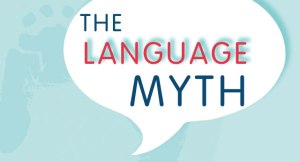Does Language Come From Instinct?
Medical Pharmaceutical Translations • Jan 26, 2015 12:00:00 AM

There is little doubt: we don’t slide into this world as beings capable of conversation. We make lots of sound but no words until we learn the words to say and how to say them.
Initiated by linguist Noam Chomsky in the 1960’s, science has purported our language development comes from instinct. His initial theory suggested we have a hypothetical “language acquisition device” stored in our brains. Like alien pods from the War of the Worlds, its spontaneous activation lies in wait for exposure to language. Chomsky’s theory has evolved into the notion of being born with a basic body of innate “Universal Grammar”. Either way, prevailing thought has been learning language is built in our DNA. It’s instinct.
Until now.
In his book, The Language Myth: Why Language Is Not an Instinct, Bangor University, UK, linguistics professor, Vyvyan Evans, attacks the notion that learning language is instinctual.
He argues, when children learn a language, grammatically perfect sentences don’t just pop out of toddler’s mouths. They learn grammatical patterns over time. Not through instinct but as Evans refers to it: “language-as-use”.
He also asks the question: if there were a “Universal Grammar”, wouldn’t we have discovered some form of commonality across the world’s 7,000 or so languages? Instead we find a plethora of diversity in distinct sounds created, word order and meaning.
For language learning to be genetic instinct, it should be hard wired in the brain, Evans adds, yet science has not found a specific location in the brain for language creation. We now know the Broca’s area is responsible for more than linguistics and multiple other areas of the brain are also involved in linguistic knowledge.
Evans also challenges the previous believed notion of the evolution of language. Chomsky argued language must have emerged from a genetic mutation, yet current Darwinian theory discounts big jumps in adaptation. The sudden mutation theory also implies language would have suddenly appeared without a real reason. Evans argues the need for co-operation likely spurred the evolution of hand gestures and then language in Neanderthal man.
Again, Evans argues, if language pops out of us from instinct, from where does it gain meaning? He argues language emerges gradually and connects with our thoughts of and experience with our surrounding world. In his December 4 th essay, The Evidence Is In: There Is No Language Instinct, published in Aeon magazine, Evan’s says language, “didn’t come out of nowhere, and it doesn’t stand apart from the rest of life.”
While this book spends it energy discounting current theory on language development, Evans next book is said to tackle this question of where language gains meaning. Based on his willingness to question status quo, we can’t wait to explore his answers.
Curious and want more information? Buy and read the book: The Language Myth: Why Language Is Not an Instinct or read Evan’s December 4 th essay for aeon magazine, found here: http://aeon.co/magazine/culture/there-is-no-language-instinct/.
You can learn more about him on his website: http://www.vyvevans.net/.
Sherry Dineen
